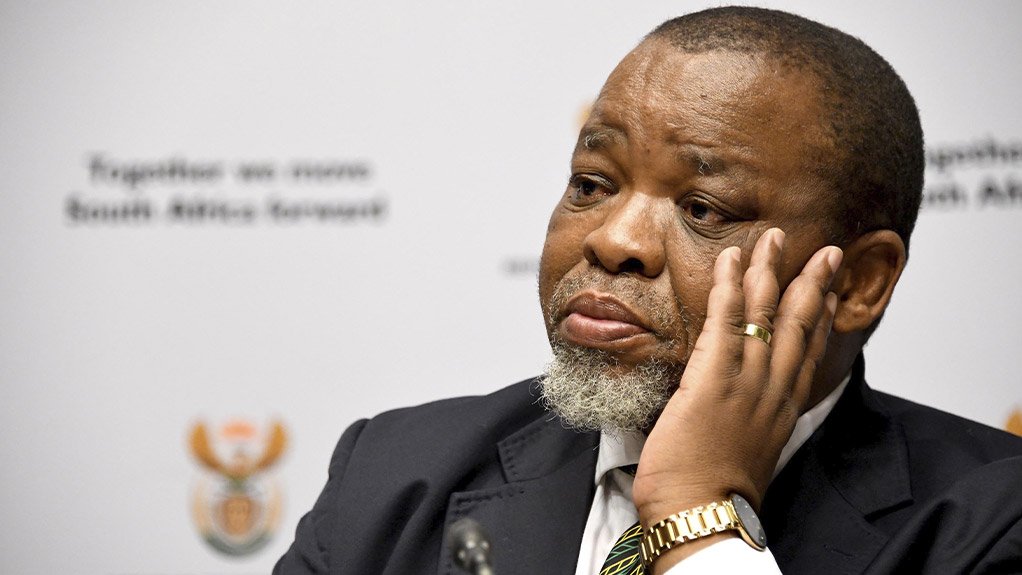The Department of Mineral Resources and Energy (DMRE) told lawmakers on May 7 that the development of a roadmap for a 2 500 MW nuclear new build programme would commence soon and that the market would be tested for “robust funding options”.
A request for information would be issued to assess market appetite for the development of small modular nuclear reactors and to enable the department to assess the pace and scale at which such a programme should proceed.
In one of the slides distributed to the committee, the DMRE indicated that it had a target of procuring 2 500 MW of nuclear energy by 2024.
Democratic Alliance committee member Kevin Mileham immediately questioned the affordability of nuclear and the 2024 procurement deadline.
He also queried why priority was being given to nuclear, as well as the hydroelectric Inga scheme in the Democratic Republic of Congo, when the introduction of further renewables capacity from independent power producers could be implemented more quickly and affordably.
There was also a lack of alignment, Mileham suggested, between the targets outlined by the department and both the national expenditure Budget Vote, which made no mention of a nuclear programme, and the Integrated Resource Plan 2019 (IRP 2019), which did not envisage any new nuclear additions, besides a Koeberg life extension, for the period to 2030.
Mineral Resources and Energy Minister Gwede Mantashe responded that any new nuclear capacity could well be built by the private sector, as had been the case with renewable energy projects.
“If a company or a consortium wants to develop nuclear modular reactors, it must come and make a presentation. We can partner with that company as the State, we may even give that company a right to develop a modular nuclear station on a build, operate and transfer basis, which means there may be no immediate calls for funding from the State, but the build programme can continue.
“All we are highlighting in our plan is that we are going to explore all options and if there is appetite for nuclear in the market, we will go ahead with it,” he added.
He also rejected suggestions that the Grand Inga project was moribund, revealing that Thabane Zulu, who was a previous director-general at the Department of Energy, had been given a mandate to develop a strategy for Inga.
“We are taking a hands-on approach now, because we are one of the expected consumers of that energy. [Inga] is very much alive, it’s not dead.”
Presenting the department’s 2020/21 performance plan, as well as its medium-term strategic plan to the Portfolio Committee on Mineral Resources and Energy, director-general Advocate Thabo Mokoena said that focus being given to nuclear was in line with the IRP 2019, which stated that “preparations must commence for the nuclear build programme, adding 2 500 MW, as this is a no-regret option in the long term”.
He added, too, that cleaner coal technologies, including carbon capture, utilisation and storage, would improve coal’s sustainability as a primary energy source.
Scant mention was made of the other technologies that had received allocations in the IRP 2019 for the period to 2030, beside Mokoena’s commitment that the various IRP 2019 technologies would be implemented. He also said that priority would be given to updating regulatory frameworks to enable these interventions.
Ahead of the Covid-19 lockdown, the National Energy Regulator of South Africa published a consultation paper on two Ministerial Determinations delivered to it for its concurrence by Mantashe.
The second paper dealt with the specific generation technologies outlined for procurement in IRP 2019, including: 6 800 MW of solar photovoltaic and wind capacity for the years 2022 to 2024; 513 MW of storage to be procured and generated for the year 2022; 3 000 MW from gas for the years 2024 to 2027; and 1 500 MW from coal for the years 2023 to 2027.
No reference is made to nuclear.
Mantashe also confirmed that government was considering opportunistic purchases of oil during the current period of price weakness to bolster its stocks.
ADDING TO STRATEGIC OIL STOCKS?
The country had available storage capacity for between four-million and five-million barrels and would look to utilise that capacity.
Government was also in talks with the consortium that, in 2015, controversially purchased Strategic Fuel Fund’s (SFF’s) oil stocks at a material discount to the prevailing oil price. A forensic report showed that the SFF sold 10.3-million barrels of South Africa's strategic fuel reserves at a price of around $28/bl, while the prevailing of Brent crude price was about $40/bl.
“The conflict between ourselves and those who bought [the SFF oil] is still under way. . . but there is a general agreement on how to settle the matter,” Mantashe reported, stressing that the physical fuel had never left South Africa.
“That strategic fuel is in Saldanha, it never left our shores. All we should settle is [whether] we pay those who purchased it and keep the fuel, or what should we do. That is what is being finalised now.”
In parallel, government was debating whether or not to procure additional oil to take advantage of the current low prices, Mantashe confirmed.
EMAIL THIS ARTICLE SAVE THIS ARTICLE ARTICLE ENQUIRY
To subscribe email subscriptions@creamermedia.co.za or click here
To advertise email advertising@creamermedia.co.za or click here











